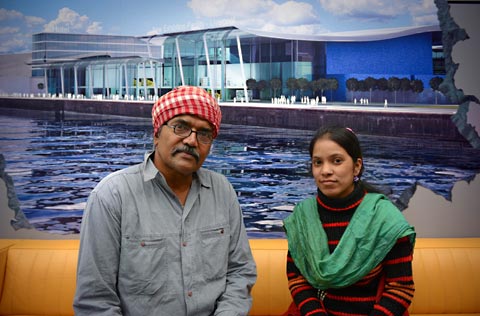
Bhopal disaster campaigners were welcomed to UNISON’s national delegate conference in Liverpool today.
Safreen Khan – whose parents were affected by the 1984 disaster and is here representing the International Campaign for Justice in Bhopal – and Satinath Sarangi – a Bhopal survivor, trustee of the Bhopal Medical Foundation and worker at the Sambhavna Trust Clinic that treats victims of the disaster – are at the conference to address a fringe meeting tomorrow lunchtime.
On the night of 2 December 1984, a Union Carbide plant in Bhopal, India, began leaking 27 tons of the deadly gas methyl isocynate. None of the six safety systems designed to contain such a leak were operational, allowing the gas to spread throughout the city of Bhopal.
The Bhopal Medical Appeal reports that half a million people were exposed to the gas and 25,000 have died to date as a result of their exposure. More than 120,000 people still suffer from ailments caused by the accident and the subsequent pollution at the plant site.
In 1989, Union Carbide, in a partial settlement with the Indian government, agreed to pay out $470m in compensation. The victims weren’t consulted in the settlement discussions, and many felt cheated by their compensation – $300-$500 – or about five years’ worth of medical expenses.
The Union Carbide Corporation was charged with culpable homicide, a criminal charge whose penalty has no upper limit. These charges have never been resolved, as Union Carbide, like its former CEO, has refused to appear before an Indian court.
Union Carbide also remains liable for the environmental devastation its operations have caused.
Environmental damages were never addressed in the 1989 settlement, and the contamination that Union Carbide left behind continues to spread.
These liabilities became the property of the Dow Corporation when it bought Union Carbide in 2001.
Dow stockholders filed a law suit in a bid to stop the sale, aware that a corporation assumes both the assets and the liabilities of any company it purchases.
Dow was quick to pay off an outstanding claim against Union Carbide soon after it acquired the company, setting aside $2.2bn to pay off former Union Carbide asbestos workers in Texas.
But Dow claims that it isn’t liable for the Bhopal accident.
